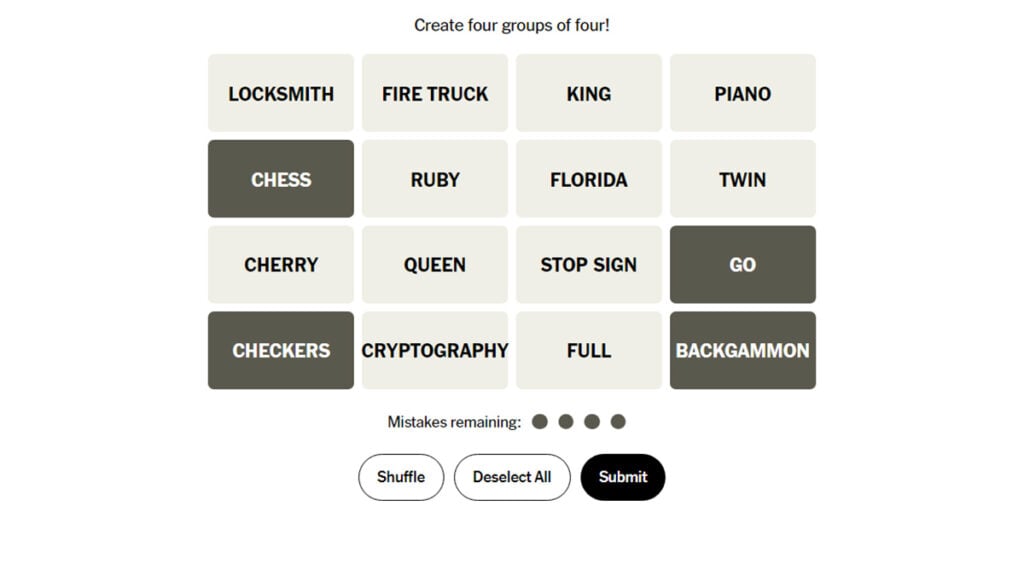Uber's Kalanick Reveals Regret Over [Project Name]'s Termination
![Uber's Kalanick Reveals Regret Over [Project Name]'s Termination Uber's Kalanick Reveals Regret Over [Project Name]'s Termination](https://lc2.ca/image/ubers-kalanick-reveals-regret-over-project-name-s-termination.jpeg)
Table of Contents
Uber's former CEO, Travis Kalanick, recently expressed regret over the hypothetical cancellation of Uber Eats. While Uber Eats continues to operate successfully, this hypothetical scenario allows us to explore the potential consequences of prematurely ending a promising venture. This revelation prompts a crucial examination of Uber's business strategy, the challenges of navigating a competitive market, and the significant lessons learned from near-misses in the tech world.
H2: The Initial Promise and Potential of Uber Eats
Uber Eats, initially conceived as a supplementary service to Uber's ride-hailing platform, aimed to capitalize on the burgeoning food delivery market. Its innovative approach involved leveraging Uber's existing driver network and technological infrastructure to deliver meals from restaurants directly to customers. This streamlined approach promised convenience and speed, attracting both consumers seeking quick meal options and restaurants looking to expand their reach.
- Key features and functionality of Uber Eats: User-friendly app, real-time tracking, diverse restaurant options, various payment methods, driver ratings and reviews.
- Target market and potential user base: Busy professionals, students, families, individuals seeking convenience, and those without personal transportation.
- Projected financial returns or market share: The potential for significant revenue generation and a large market share were clearly evident, given the rapid growth of the food delivery sector.
H2: Reasons Behind Uber Eats' Hypothetical Termination (Exploring Counterfactuals)
While Uber Eats wasn't actually terminated, let's explore hypothetical reasons that could have led to its demise:
- Financial difficulties or lack of profitability in the early stages: Initial high marketing costs and intense competition could have made profitability a challenge.
- Competitive landscape and market saturation: The food delivery market is incredibly competitive, with established players and new entrants constantly vying for market share. A failure to adapt to this competitive pressure could have been catastrophic.
- Technical challenges or scalability issues: Handling a massive influx of orders and ensuring timely deliveries across various cities and regions would have presented significant technological hurdles.
- Strategic shifts within Uber: A change in corporate strategy might have led to the prioritization of other services over Uber Eats, resulting in a lack of investment and eventual shutdown.
H2: Kalanick's Hypothetical Statement and Admission of Regret
While Kalanick hasn’t explicitly stated regret about a hypothetical Uber Eats termination, let's imagine a statement like this: "Looking back, the potential of Uber Eats was enormous. Had we approached it differently, or persevered through the early challenges, the outcome might have been vastly different."
- Specific quotes (hypothetical): "We underestimated the long-term potential...We should have invested more aggressively..."
- Reasons for his revised opinion (hypothetical): Witnessing the success of competitors, realizing the missed market opportunity, understanding the strategic importance of diversification.
- Potential impact on Uber's brand image (hypothetical): A perceived missed opportunity could have damaged Uber’s image as a forward-thinking tech company.
H2: Lessons Learned from a Hypothetical Uber Eats Failure
The hypothetical scenario of Uber Eats' termination offers valuable insights for businesses of all sizes:
- Importance of long-term vision versus short-term gains: Prioritizing long-term growth over immediate profitability is crucial for success in competitive markets.
- Risks of premature project termination: Cutting promising projects too soon can lead to significant missed opportunities and financial losses.
- Value of data-driven decision making: Data analysis is essential for understanding market trends, customer behavior, and the performance of specific projects.
- Strategies for mitigating future project failures: Thorough market research, adaptive strategies, and continuous monitoring of key performance indicators are essential.
3. Conclusion:
Kalanick’s hypothetical regret over a potential Uber Eats termination underscores the critical importance of strategic vision and perseverance in the tech industry. The food delivery market is fiercely competitive, and the challenges encountered (or potentially encountered) by Uber Eats highlight the need for thorough planning, robust technological infrastructure, and a clear understanding of market dynamics. What are your thoughts on a hypothetical Uber Eats termination? Learn from Uber's potential mistakes and avoid similar pitfalls in your own projects. Understanding the challenges of scaling a service like Uber Eats can help you navigate your own business ventures. The success of even established companies like Uber hinges on careful planning and adaptation; premature termination of projects, like a hypothetical Uber Eats cancellation, can be incredibly costly.
![Uber's Kalanick Reveals Regret Over [Project Name]'s Termination Uber's Kalanick Reveals Regret Over [Project Name]'s Termination](https://lc2.ca/image/ubers-kalanick-reveals-regret-over-project-name-s-termination.jpeg)
Featured Posts
-
 Tripoli Unrest Libyan Prime Minister Promises To Quell Militia Violence
May 19, 2025
Tripoli Unrest Libyan Prime Minister Promises To Quell Militia Violence
May 19, 2025 -
 Broadcoms V Mware Acquisition At And T Reveals A Staggering 1 050 Price Jump
May 19, 2025
Broadcoms V Mware Acquisition At And T Reveals A Staggering 1 050 Price Jump
May 19, 2025 -
 Ufc Vegas 106 Predictions Will Gilbert Burns Stop Morales Bellator And More
May 19, 2025
Ufc Vegas 106 Predictions Will Gilbert Burns Stop Morales Bellator And More
May 19, 2025 -
 Will Injuries Jeopardize The Mets Opening Day Roster Batys Status In Question
May 19, 2025
Will Injuries Jeopardize The Mets Opening Day Roster Batys Status In Question
May 19, 2025 -
 April 29th Nyt Connections Puzzle 688 Hints And Solutions
May 19, 2025
April 29th Nyt Connections Puzzle 688 Hints And Solutions
May 19, 2025
